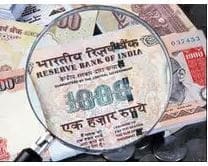TACKLING FRAUDS Recovery, confiscation and arrest powers likely for IGST-related cases
Indian customs officials could soon get more powers to effectively deal with growing tax frauds of integrated goods and service tax credits. The government is contemplating amending the Customs Act in the upcoming budget to enable this, an official privy to the development. “We are examining what kind of changes need to be made to the law.” The proposed changes could provide powers for recovery, confiscation and arrest, the official said.
There has been a rise in integrated GST-related frauds with many exporters using IGST credits to pay customs duty liability, prompting customs officials to initiate investigation. However, the authorities find themselves at bay as the law does not explicitly provide to deal with such frauds, and are now seeking stringent provisions in the law.
IGST replaced countervailing duty, which was levied in lieu of central excise on imports, under the customs framework. Section 5 of the IGST Act, 2017 provides for levy of IGST on imports. A rider to Section 5 states that IGST on imports will be levied and collected in accordance with Section 3 of Customs Tariff Act, 1975. Section 3, in turn, seeks to levy additional duty as equivalent to the excise duties, sales tax, which are still levied on petroleum products and alcohol. Though, it is clearly implied that customs law is intended to apply on all aspects of IGST imposed on imported goods, there is no explicit or direct reference to other natural provisions of imposition and collection of such customs duty such as assessment or recovery.
This puts officials on a weak wicket in treating tax frauds. They are forced to refer cases to GST officials, which sometimes leads to delays in action. Tax experts said an enabling provision may be needed to back up the intent. “Since IGST on import is paid along with basic customs duty and documents or processes are same, customs authorities should logically be empowered to administer and enforce it,” said KaustuvSen, indirect tax partner at PwC India. “This was perhaps the intention right from the beginning, which may need enabling legislative provisions, introduction of which seem to be contemplated now.”

